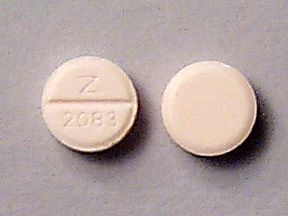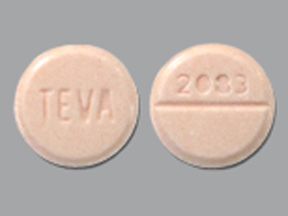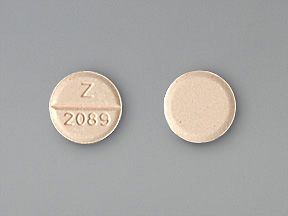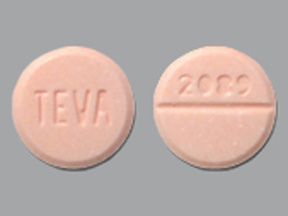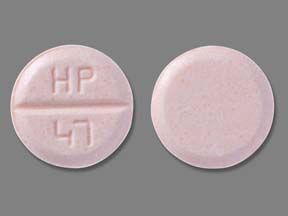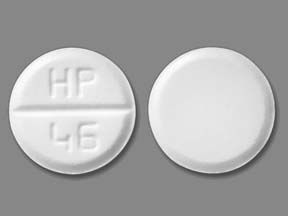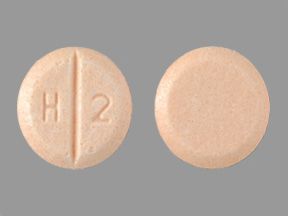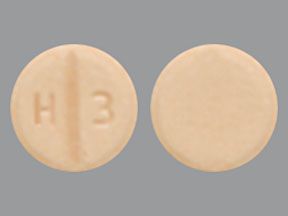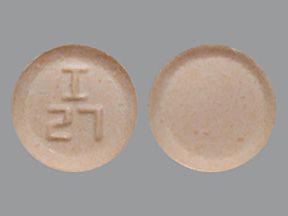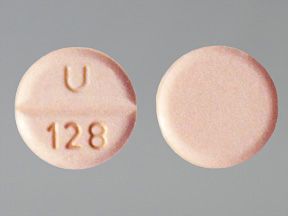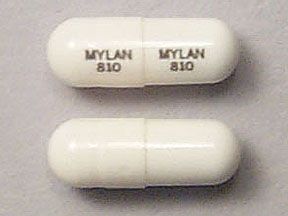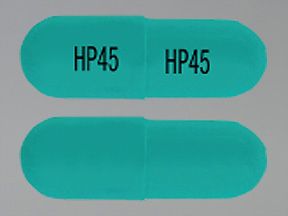Hydrochlorothiazide oral tablet is a generic drug that’s prescribed for edema (swelling due to fluid buildup) caused by certain conditions and for high blood pressure. Hydrochlorothiazide belongs to the thiazide diuretic drug class.
- Hydrochlorothiazide oral tablet is only available as a generic drug.
- Hydrochlorothiazide comes as a tablet and a capsule that you take by mouth. This article discusses the tablet form only. (For more information about the oral capsules, see the prescribing information for this form of the drug.)
- Hydrochlorothiazide oral tablet is used to treat high blood pressure and edema (swelling due to fluid buildup) caused by heart failure, liver damage, kidney problems, and certain medications.
Hydrochlorothiazide oral tablet is a prescription drug that’s available in generic form only. Generic drugs usually cost less than brand-name drugs.
Why it’s used
Hydrochlorothiazide is used to treat high blood pressure in adults and children. It’s also used to treat edema (swelling due to fluid buildup) that’s caused by heart failure, cirrhosis (liver damage), and taking medications called corticosteroids or estrogens. It may also help treat edema that’s caused by kidney problems. The drug can be used for edema in adults and children.
This drug may be prescribed by itself or in combination with other drugs.
For more information about the conditions hydrochlorothiazide is used to treat, see our hypertension and cardiovascular health hubs.
How it works
Hydrochlorothiazide belongs to a class of drugs called thiazide diuretics. A class of drugs is a group of medications that work in a similar way. These drugs are often used to treat similar conditions.
It isn’t known exactly how hydrochlorothiazide works. It’s thought that it works to remove excess salt and water from your body. This action keeps your heart from working as hard to pump blood, which lowers blood pressure and reduces swelling.
How long it lasts
Hydrochlorothiazide takes about 2 hours to start working. The effects of the drug are strongest approximately 4 hours after it’s taken. And its effects typically last 6 to 12 hours.
If your doctor recommends stopping hydrochlorothiazide, the drug will typically stay in your system for about 3 to 4 days after your last dose.
If you have questions about how long you’ll continue taking hydrochlorothiazide or how long its effects last, talk with your doctor.
Hydrochlorothiazide can cause mild or serious side effects. The following list contains some of the key side effects that may occur while taking hydrochlorothiazide. This list does not include all possible side effects.
For more information on the possible side effects of hydrochlorothiazide, or tips on how to deal with a troubling side effect, talk with your doctor or pharmacist.
More common side effects
The more common side effects that can occur with hydrochlorothiazide include:
- blood pressure that’s lower than usual (especially when standing up after sitting or lying down)
- dizziness
- headache
- weakness
- erectile dysfunction (difficulty getting or keeping an erection)
- tingling in your hands, legs, and feet
- photosensitivity (a condition where your skin is more sensitive to the sun)
- muscle spasms
- diarrhea
These effects may go away within a few days or a couple of weeks. If they’re more severe or don’t go away, talk with your doctor or pharmacist.
Serious side effects
Call your doctor right away if you have serious side effects. Call 911 if your symptoms feel life threatening or if you think you’re having a medical emergency. Serious side effects and their symptoms can include the following:
- severe skin reactions such as Stevens-Johnson syndrome and exfoliative dermatitis, with symptoms such as:
- painful skin rash
- skin peeling and blisters
- fever
- mouth sores
- kidney failure, with symptoms such as:
- weakness
- shortness of breath
- tiredness
- confusion
- abnormal heart rate or chest pain
- producing less urine than usual
- increased swelling in your legs, ankles, or feet
- blurred vision, with symptoms such as:
- eye pain
- trouble seeing
- pancreatitis (inflammation in the pancreas), with symptoms such as:
- upset stomach
- vomiting
- intense abdominal or back pain
The hydrochlorothiazide dosage your doctor prescribes will depend on several factors. These include:
- the type and severity of the condition you’re using hydrochlorothiazide to treat
- your age
- the form of hydrochlorothiazide you take
- other medical conditions you may have, such as kidney damage
Typically, your doctor will start you on a low dosage and adjust it over time to reach the dosage that’s right for you. They’ll ultimately prescribe the smallest dosage that provides the desired effect.
The following information describes dosages that are commonly used or recommended. However, be sure to take the dosage your doctor prescribes for you. Your doctor will determine the best dosage to suit your needs.
Note: Hydrochlorothiazide is approved for use in children, but there’s no specific approved age range. Children’s dosage information is based on research and historical use of hydrochlorothiazide.
Forms and strengths
Generic: hydrochlorothiazide
- Form: oral tablet
- Strengths: 12.5 milligrams (mg), 25 mg, and 50 mg
Dosage for high blood pressure
Adult dosage (ages 18 to 64 years)
- Dosage increases: If your blood pressure stays high, your doctor may increase your dosage to 50 mg per day given as a single dose or two divided doses.
- Typical starting dosage: 25 mg taken by mouth once per day.
Child dosage (ages 12 to 17 years)
- Dosage for children ages 12 to 17 years old is not stated in the drug’s prescribing information. If your child is in this age range, ask their doctor about the recommended dosage of hydrochlorothiazide.
Child dosage (ages 2 to 11 years)
- Typical dosage: 0.5 mg to 1 mg per pound of body weight, per day. This is taken as one dose or two divided doses.
- Maximum daily dosage: 100 mg.
Child dosage (less than 2 years old)
- Typical dosage: 0.5 mg to 1 mg per pound of body weight, per day. This is given as one dose or two divided doses. Children less than 6 months old may be given doses up to 1.5 mg per pound. These will typically be given as two doses per day.
- Maximum daily dosage: 37.5 mg.
Older adult dosage (ages 65 years and older)
There are no specific recommendations for dosing in older adults. However, older adults may process drugs more slowly. A typical adult dosage may cause levels of this drug to be higher than recommended in your body. If you’re an older adult, you may need a lower dosage or a different dosing schedule.
Dosage for edema
Adult dosage (ages 18 to 64 years)
- Typical dosage: 25 to 100 mg each day, taken by mouth as a single or divided dose.
- Intermittent therapy: Instead of having you take hydrochlorothiazide every day, your doctor might prescribe intermittent therapy. This refers to taking the drug every other day or for 3 to 5 days each week. Taking the drug this way lowers your risk of an imbalance in your electrolytes.
Child dosage (ages 12 to 17 years)
- Dosage for children ages 12 to 17 years old is not stated in the drug’s prescribing information. If your child is between the ages of 12 and 17 years, ask their doctor about the recommended dosage of hydrochlorothiazide.
Child dosage (ages 2 to 11 years)
- Typical dosage: 0.5 mg to 1 mg per pound of body weight, per day. This is taken as one dose or two divided doses.
- Maximum daily dosage: 100 mg.
Child dosage (less than 2 years old)
- Typical dosage: 0.5 mg to 1 mg per pound of body weight, per day. This is given as one dose or two divided doses. Children less than 6 months old may be given doses up to 1.5 mg per pound. These will typically be given as two doses per day.
- Maximum daily dosage: 37.5 mg.
Older adult dosage (ages 65 years and older)
There are no specific recommendations for dosing in adults 65 years and older. However, older adults may process drugs more slowly. A typical adult dosage may cause levels of this drug to be higher than recommended in your body. If you’re an older adult, you may need a lower dosage or a different dosing schedule.
As with all medications, the cost of hydrochlorothiazide can vary. The actual price you’ll pay depends on your insurance plan, your location, and the pharmacy you use.
Keep in mind that you may be able to get a 90-day supply of hydrochlorothiazide. If approved by your insurance company, getting a 90-day supply of the drug could reduce your number of trips to the pharmacy and help lower the cost. If you’re interested in this option, check with your doctor, pharmacist, or insurance company.
For more information about the cost of hydrochlorothiazide, see this detailed article.
Drug coupons
You can visit Optum Perks* for coupons and price estimates of hydrochlorothiazide. These estimates are based on the use of Optum Perks coupons. Note: Optum Perks coupons cannot be used with any insurance copays or benefits.
* Optum Perks is a sister site of Medical News Today.
Financial and insurance assistance
Financial assistance to help you pay for hydrochlorothiazide may be available.
Medicine Assistance Tool and NeedyMeds are two websites offering resources that may help decrease the price you pay for hydrochlorothiazide. They also offer tools to help you find low cost healthcare, as well as educational resources. To learn more, visit their sites.
To learn more about saving money on prescriptions, check out this article.
Mail-order pharmacies
Hydrochlorothiazide may be available through a mail-order pharmacy. Using this service may help lower the drug’s cost and allow you to get your medication without leaving home.
If recommended by your doctor, you may be able to receive a 90-day supply of hydrochlorothiazide, so there’s less concern about running out of the medication. If you’re interested in this option, check with your doctor, pharmacist, or insurance company. Some Medicare plans may help cover the cost of mail-order medications.
If you don’t have insurance, you can ask your doctor or pharmacist about online pharmacy options.
Save on your hydrochlorothiazide prescription
Save on hydrochlorothiazide without insurance.
Enter your information:
Location
47201
Dosage
25mg hydrochlorothiazide (30 Tablets)
Save money without using insurance
Simply show the Optum Perks coupon at your preferred pharmacy or order online and instantly save up to 80% without using insurance. The coupon doesn’t expire, so be sure to save it for refills.
Retail price refers to the manufacturer’s published list price and is up to date as of 3/2023. Retail and discounted prices are U.S.-only and can vary based on region and pharmacy. We cannot guarantee that the discounted price listed here will exactly match the price at your pharmacy. Please contact your pharmacy for the exact price.
Optum Perks and Healthline are subsidiaries of RVO Health.
Pricing source:Perks.optum.com

Hydrochlorothiazide oral tablet can interact with several other medications. Different interactions can cause different effects. For instance, some can interfere with how well a drug works, while others can cause increased side effects.
Below is a list of medications that can interact with hydrochlorothiazide. This list does not contain all drugs that may interact with hydrochlorothiazide.
Before taking hydrochlorothiazide, be sure to tell your doctor and pharmacist about all prescription, over-the-counter, and other drugs you take. Also tell them about any vitamins, herbs, and supplements you use. Sharing this information can help you avoid potential interactions.
If you have questions about drug interactions that may affect you, ask your doctor or pharmacist.
Barbiturates
If you take barbiturates with hydrochlorothiazide, your blood pressure may get too low. You may have symptoms such as feeling dizzy when you stand up after sitting or lying down. Examples of these drugs include:
- phenobarbital
- pentobarbital
Lithium
In general, lithium should not be taken with hydrochlorothiazide. That’s because hydrochlorothiazide slows the clearance of lithium from your body. This increases your risk of high levels of lithium in your body, which can cause dangerous side effects.
Blood pressure drugs
Taking hydrochlorothiazide with other blood pressure medications can make your blood pressure drop too low. Examples of these drugs include:
- angiotensin-converting enzyme (ACE) inhibitors, such as:
- lisinopril (Zestril)
- fosinopril
- enalapril (Vasotec)
- angiotensin receptor blockers (ARBs), such as:
- losartan (Cozaar)
- valsartan (Diovan)
- candesartan (Atacand)
- beta-blockers, such as:
- atenolol (Tenormin)
- metoprolol (Lopressor, Toprol XL)
- bisoprolol
- calcium channel blockers, such as:
- amlodipine (Norvasc)
- verapamil (Verelan)
- diltiazem (Cardizem, Cartia XT)
Cholesterol-lowering drugs
Taking hydrochlorothiazide with certain drugs that lower cholesterol levels may make hydrochlorothiazide less effective. This means it may not work as well to treat your blood pressure or edema (swelling due to fluid buildup). Examples of these cholesterol drugs include:
- cholestyramine (Prevalite)
- colestipol (Colestid)
Corticosteroids
Hydrochlorothiazide can lower your electrolyte levels. Taking corticosteroids with hydrochlorothiazide can cause further loss of electrolytes (especially potassium). Low potassium levels can lead to constipation, fatigue, muscle breakdown, and weakness. Examples of these drugs include:
- prednisone (Rayos)
- methylprednisolone (Medrol)
Diabetes drugs
Hydrochlorothiazide can cause high blood sugar levels. If you take hydrochlorothiazide with diabetes drugs, your doctor may increase your dosage of your diabetes medications. Examples of these drugs include:
- insulin
- oral diabetes drugs, such as:
- metformin (Glumetza)
- glimepiride (Amaryl)
- pioglitazone (Actos)
- sitagliptin (Januvia)
Narcotics
Taking hydrochlorothiazide with narcotic pain medications can make your blood pressure drop too low. You may have symptoms such as feeling dizzy when you stand up after sitting or lying down. Examples of these drugs include:
- morphine (MS Contin)
- codeine
Nonsteroidal anti-inflammatory drugs (NSAIDs)
Taking NSAIDs with hydrochlorothiazide can make hydrochlorothiazide less effective. This means it may not work as well to treat your blood pressure or edema.
If you’re taking an NSAID with hydrochlorothiazide, your doctor will closely monitor you. Examples of these drugs include:
This drug comes with several warnings.
Anuria
If you have anuria, your doctor won’t prescribe hydrochlorothiazide. With anuria, the kidneys stop producing urine, which is usually caused by kidney disease. Your doctor can recommend other treatments for your condition besides hydrochlorothiazide.
Fluid and electrolyte imbalance warning
Your doctor should check your fluid and electrolyte levels while you’re taking hydrochlorothiazide. This drug can cause a fluid or electrolyte imbalance. Symptoms can include:
- dry mouth
- thirst
- weakness
- tiredness
- restlessness
- confusion
- seizures
- muscle pain or cramps
- muscle fatigue
- lower than usual blood pressure
- higher than usual heart rate
- producing less urine than usual
- nausea or vomiting
Vision problems warning
Hydrochlorothiazide can cause blurred vision and glaucoma. Symptoms can include eye pain and trouble seeing. These problems often occur within hours to weeks after starting this medication.
Tell your doctor if you have any vision problems while taking this drug. If you have blurred vision, it may return to your typical vision after you stop taking this medication. However, if left untreated, certain vision problems can lead to permanent vision loss.
If you develop any vision problems while taking hydrochlorothiazide, contact your doctor right away.
Sulfonamide allergy warning
If you’re allergic to medications that contain sulfonamide, your doctor will not prescribe hydrochlorothiazide.
Allergy warning
Hydrochlorothiazide can cause allergic reaction, which can be severe. In general, symptoms of allergic reaction can be mild or serious. Serious symptoms can include:
- trouble breathing
- swelling of your throat or tongue
- hives
You can learn more about possible symptoms in this article.
For mild allergic reaction symptoms, such as a mild rash, call your doctor right away. They may recommend treatments to help manage your symptoms. They’ll also let you know whether you should keep taking the medication.
For severe allergic reaction symptoms, call 911 or your local emergency number right away. These symptoms require immediate medical care because they can become life threatening. If you’ve had a serious allergic reaction to hydrochlorothiazide, your doctor may recommend taking a different medication instead.
If you’ve ever had an allergic reaction to hydrochlorothiazide, your doctor will not prescribe it for you again. Taking it again could be fatal (cause death).
Alcohol warning
Drinking alcohol while taking hydrochlorothiazide can make your blood pressure drop too low. You may have symptoms such as feeling dizzy when you stand up after sitting or lying down.
If you drink alcohol, talk with your doctor about how much (if any) is safe for you to have while you’re taking hydrochlorothiazide.
Warnings for people with certain health conditions
For people with kidney problems: Use caution when taking hydrochlorothiazide if you have decreased kidney function. This drug is cleared from your body by your kidneys. If your kidneys have difficulty working, this drug may build up in your body and cause more side effects. If your kidney function gets worse, your doctor might stop your treatment with this medication.
For people with kidneys that make too little urine: Your doctor won’t prescribe hydrochlorothiazide if your kidneys have difficulty making enough urine. This drug can cause electrolyte and fluid loss, which may make you produce even less urine.
For people with liver problems: Use this drug with caution if you have decreased liver function or progressive liver disease. Hydrochlorothiazide can cause electrolyte and fluid imbalance. This can cause your liver function to get worse.
For people with lupus: Hydrochlorothiazide can cause your lupus to flare up. Be sure to discuss this with your doctor before starting your treatment.
Warnings for certain groups
For pregnant people: Talk with your doctor if you’re pregnant or planning to become pregnant.
Research in animals hasn’t shown a risk to the fetus when the drug is given during pregnancy. But there haven’t been enough studies done in humans to show if the drug poses a risk to the fetus.
This drug should only be used during pregnancy if the potential benefit justifies the risk.
For people who are breastfeeding: Hydrochlorothiazide may pass into breast milk and may cause side effects in a child who is breastfed. Talk with your doctor if you breastfeed your child. You may need to decide whether to stop breastfeeding or stop taking this medication.
For older adults (seniors): Older adults may process drugs more slowly. A typical adult dose may cause levels of this drug to be higher than recommended in your body. If you’re an older adult, you may need a lower dose or a different schedule.
Hydrochlorothiazide is used for long-term treatment. It comes with serious risks if you don’t take it as prescribed.
If you stop taking the drug or don’t take it at all: If you don’t take hydrochlorothiazide as prescribed or if you stop taking it, your edema (swelling due to fluid buildup) and high blood pressure might get worse. High blood pressure raises your risk of heart attack or stroke.
If you stop taking the drug suddenly, your edema can worsen and your blood pressure might increase rapidly.
If you miss doses or don’t take the drug on schedule: Your medication may not work as well or may stop working completely. For this drug to work well, a certain amount needs to be in your body at all times.
If you take too much: If you take too much hydrochlorothiazide, your blood pressure might drop too low. You might feel faint or dizzy.
If you think you’ve taken too much of this drug, call your doctor or seek guidance from America’s Poison Centers at 800-222-1222 or through its online tool. But if your symptoms are severe, call 911 or go to the nearest emergency room right away.
What to do if you miss a dose: If you forget to take your dose, take it as soon as you remember. If it’s just a few hours until the time for your next dose, then wait and only take one dose at that time. Never try to catch up by taking two doses at once. This could cause dangerous side effects.
How to tell if the drug is working: Signs that hydrochlorothiazide is working differ depending on the condition it’s being taken to treat. If you’re taking it to treat high blood pressure, your blood pressure should be lower. If you’re taking the drug to treat edema in your legs and feet, the swelling should decrease. Keep in mind that hydrochlorothiazide generally takes about 2 hours to begin working after you take a dose.
Your doctor will monitor your blood pressure at your checkups. You can also check your blood pressure at home. Keep a log with the date, time of day, and your blood pressure readings. Bring this log with you to your doctor appointments.
Keep these considerations in mind if your doctor prescribes hydrochlorothiazide for you.
General
- You can take hydrochlorothiazide with or without food.
- Take this drug in the morning, not the evening. This drug may make you urinate more. Taking it in the evening can make you need to get up at night to use the bathroom.
- You can crush hydrochlorothiazide tablets.
Storage
- Store hydrochlorothiazide at a temperature between 68°F and 77°F (20°C and 25°C).
- Keep this drug away from light.
- Don’t store this medication in moist or damp areas, such as bathrooms.
Refills
A prescription for this medication is refillable. Your doctor will write the number of refills authorized on your prescription.
Travel
When traveling with your medication:
- Always carry your medication with you. When flying, never put it into a checked bag. Keep it in your carry-on bag.
- Don’t worry about airport X-ray machines. They can’t harm your medication.
- You may need to show airport staff the pharmacy label for your medication. Always carry the original prescription-labeled container with you.
- Don’t put this medication in your car’s glove compartment or leave it in the car. Be sure to avoid doing this when the weather is very hot or very cold.
Self-management
You may need to check your blood pressure at home. You should keep a log with the date, time of day, and your blood pressure readings. Bring this log with you to your checkups.
Clinical monitoring
During treatment with this drug, your doctor may check your potassium levels. This will help make sure you don’t have any imbalances.
There are other drugs available to treat your condition. Some may be more suitable for you than others. Talk with your doctor about possible alternatives.
Disclaimer: Medical News Today has made every effort to make certain that all information is factually correct, comprehensive, and up to date. However, this article should not be used as a substitute for the knowledge and expertise of a licensed healthcare professional. You should always consult your doctor or another healthcare professional before taking any medication. The drug information contained herein is subject to change and is not intended to cover all possible uses, directions, precautions, warnings, drug interactions, allergic reactions, or adverse effects. The absence of warnings or other information for a given drug does not indicate that the drug or drug combination is safe, effective, or appropriate for all patients or all specific uses.

